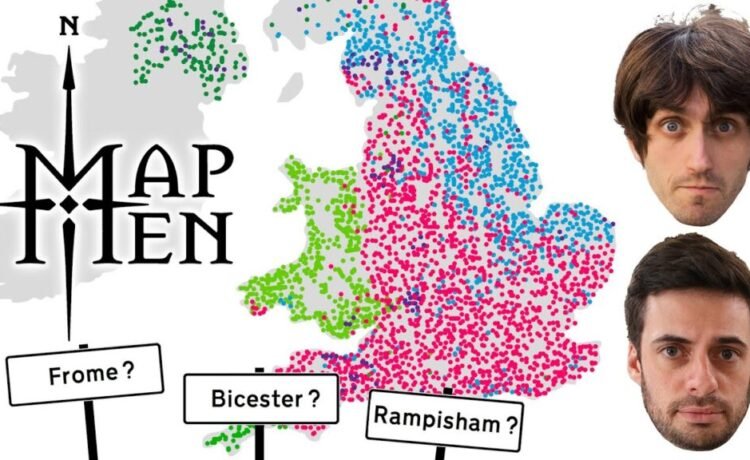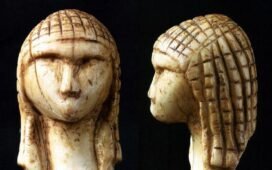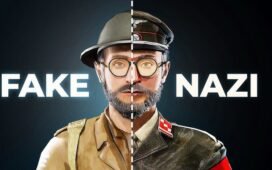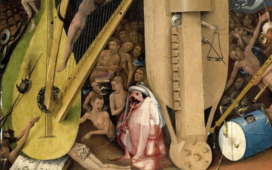When they make their first transoceanic voyage, more than a few Americans choose to go to England, on the assumption that, whatever culture shock they might experience, at least none of the difficulties will be linguistic. Only when it’s too late do they discover the true meaning of the old line about being separated by a common language. Take place names, not just in England but even more so across the whole of Great Britain. How would you pronounce, for instance, Beaulieu, Rampisham, Mousehole, Towcester, Gotham, Quernmore, Alnwick, or Frome?
There’s a good chance that you got most of those wrong, even if you’re not American. But as explained in the Map Men video above, bona fide Brits also have trouble with some of them: a few years ago, the deceptively straightforward-looking Frome came out on top of a domestic survey of the most mispronounced names. If you’re keen on making your experience in Great Britain somewhat less embarrassing, whatever your nationality, the Map Men have put together a humorous guide to the rules of “proper” place-name pronunciation — such as they exist — as well as an explanation of the historical factors that originally made it so counterintuitive.
The evolution of the English language itself has something to do with it, involving as it does “a base of Germanic Anglo-Saxon,” a “healthy dash of Old Norse,” a “huge dollop of Norman French,” and “just a fairly detectable hint of Celtic.” British place names reflect its history of settlement and invasion, the oldest of them being Celtic in origin (the dreaded Frome, for example), followed by Latin, then Germanic Anglo-Saxon (resulting in cities with names like Norwich, whose silent W I never seem to pronounce silently enough to satisfy an Englishman), then Norse.
After centuries and centuries of subsequent shifts in pronunciation without corresponding changes in spelling, you arrive in a country “littered with phonetic booby traps.” It could all seem like a reflection of the characteristic British anti-logic diagnosed, not without a note of pride, by George Orwell. But traveling Americans gassed up on their perceptions of their own relative practicality should take a long, hard look at a map of the United States some time. Having grown up in Washington State, I ask this: who among you dares to pronounce the names of towns like Marysville, Puyallup, Yakima, or Sequim?
Related content:
Hear the Evolution of the London Accent Over 660 Years: From 1346 to 2006
The Entire History of the British Isles Animated: 42,000 BCE to Today
The Atlas of True Names Restores Modern Cities to Their Middle Earth-ish Roots
Based in Seoul, Colin Marshall writes and broadcasts on cities, language, and culture. His projects include the Substack newsletter Books on Cities and the book The Stateless City: a Walk through 21st-Century Los Angeles. Follow him on the social network formerly known as Twitter at @colinmarshall.















